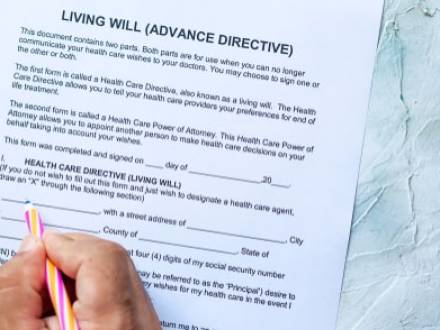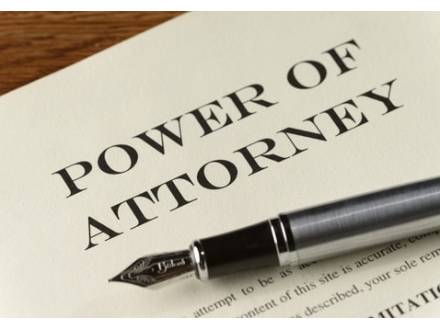Recent Blog Posts
Signs Your Elderly Parent May Need a Legal Guardian
 It can be heartbreaking to watch your parent’s health decline, especially when their ability to manage daily responsibilities begins to slip. From missed medications, risky financial decisions, or growing confusion about routine tasks, these changes can put his or her well-being at risk. In some instances, seeking legal guardianship may be necessary to protect your loved one’s safety and dignity. An experienced Texas elder law attorney can help you understand your options and guide you through the guardianship process under state law.
It can be heartbreaking to watch your parent’s health decline, especially when their ability to manage daily responsibilities begins to slip. From missed medications, risky financial decisions, or growing confusion about routine tasks, these changes can put his or her well-being at risk. In some instances, seeking legal guardianship may be necessary to protect your loved one’s safety and dignity. An experienced Texas elder law attorney can help you understand your options and guide you through the guardianship process under state law.
Are They Struggling to Make Safe Decisions?
One of the first signs that guardianship may be appropriate is when your parent begins making decisions that jeopardize his or her health, safety, or finances. This may include:
-
Forgetting to eat, bathe, or take medications
Should I Put Advanced Directives in My Will?
 Many people want to ensure that their medical wishes are respected if they become seriously ill or unable to communicate. If you are healthy now but thinking ahead about long-term care, advanced directives can provide clear instructions about your medical treatment and who can make decisions for you. These legal documents give your family and doctors the guidance they need before a crisis happens.
Many people want to ensure that their medical wishes are respected if they become seriously ill or unable to communicate. If you are healthy now but thinking ahead about long-term care, advanced directives can provide clear instructions about your medical treatment and who can make decisions for you. These legal documents give your family and doctors the guidance they need before a crisis happens.
However, one common mistake is including advanced directives in a will, which is not the best way to make sure your end-of-life care preferences are followed. At The Law Office of Ryan C. Moe, PLLC, our Texas estate planning lawyers help people address this sensitive topic with legally enforceable advanced directives that ensure their wishes are carried out when it matters most.
Why a Will Is Not the Right Place for Advanced Directives
A will is a legal document that distributes your assets after your death; it does not take effect while you are still alive. That means any medical instructions included in a will would not be reviewed until after it is too late to follow them.
Who Has Standing to Contest a Will or Trust?
 Before you can file a will contest or initiate trust litigation, you will need to show that you have legal standing to do so. Only people who have a legal interest in the case can challenge an estate plan. The standing rule prevents people who have no real interest in the outcome of the case from starting frivolous lawsuits to slow down estate administration for a personal enemy or filing litigation that is unwanted by the parties who would be affected by the outcome. This helps keep probate courts operating more efficiently for everyone. Showing that you have standing to challenge a trust can be more complicated than showing that you have standing to challenge a will. If you believe that there is an issue with your loved one’s estate plans and are considering litigation, you should work closely with an experienced San Antonio, TX estate litigation attorney.
Before you can file a will contest or initiate trust litigation, you will need to show that you have legal standing to do so. Only people who have a legal interest in the case can challenge an estate plan. The standing rule prevents people who have no real interest in the outcome of the case from starting frivolous lawsuits to slow down estate administration for a personal enemy or filing litigation that is unwanted by the parties who would be affected by the outcome. This helps keep probate courts operating more efficiently for everyone. Showing that you have standing to challenge a trust can be more complicated than showing that you have standing to challenge a will. If you believe that there is an issue with your loved one’s estate plans and are considering litigation, you should work closely with an experienced San Antonio, TX estate litigation attorney.
Can a Person With Alzheimer's Make an Estate Plan?
 Alzheimer’s is one of many age-related conditions that can affect a person’s mental state. People with Alzheimer’s or similar conditions can struggle with short and long-term memory loss and may experience confusion or impaired reasoning. Getting this diagnosis can be frightening and upsetting, for you and for your closest loved ones. Many people with Alzheimer’s have lost or will lose the capacity required to create a legally binding trust or will. However, many people who are in the early stages of Alzheimer’s do meet the requirements to sign a will or trust. If you or a loved one has been diagnosed with Alzheimer’s and would like to make an estate plan, you must act quickly. An experienced San Antonio, TX estate planning attorney can help to assess whether an individual is still able to create an estate plan.
Alzheimer’s is one of many age-related conditions that can affect a person’s mental state. People with Alzheimer’s or similar conditions can struggle with short and long-term memory loss and may experience confusion or impaired reasoning. Getting this diagnosis can be frightening and upsetting, for you and for your closest loved ones. Many people with Alzheimer’s have lost or will lose the capacity required to create a legally binding trust or will. However, many people who are in the early stages of Alzheimer’s do meet the requirements to sign a will or trust. If you or a loved one has been diagnosed with Alzheimer’s and would like to make an estate plan, you must act quickly. An experienced San Antonio, TX estate planning attorney can help to assess whether an individual is still able to create an estate plan.
Understanding The Capacity Test
The legal test used to determine whether an individual has the capacity to make a will or trust is fairly specific. First, a person must be able to understand the nature of his will or trust and the effect of signing a legal document. If he is able to simply explain what their estate planning documents are for and what they will do, this prong is usually met.
The Most Common Grounds for Removing an Estate Trustee
 When a person is creating a trust meant to be used for distributing his or her assets after death, one of the most important tasks is choosing a trustee. A trustee should be someone the trust creator believes will faithfully carry out his or her wishes while managing the trust funds responsibly. Unfortunately, sometimes, a trustor’s faith is misplaced, and the trustee begins mishandling the trust or failing to act in the best interests of the beneficiaries after the trustor has died. If you are a trust beneficiary and have serious doubts about the trustee’s conduct or abilities, a San Antonio, TX fiduciary litigation attorney can help you take action.
When a person is creating a trust meant to be used for distributing his or her assets after death, one of the most important tasks is choosing a trustee. A trustee should be someone the trust creator believes will faithfully carry out his or her wishes while managing the trust funds responsibly. Unfortunately, sometimes, a trustor’s faith is misplaced, and the trustee begins mishandling the trust or failing to act in the best interests of the beneficiaries after the trustor has died. If you are a trust beneficiary and have serious doubts about the trustee’s conduct or abilities, a San Antonio, TX fiduciary litigation attorney can help you take action.
Causing a Material Financial Loss to the Trust
If a trustee violates the terms of the trust and causes the trust to lose money, he or she may be subject to removal. For example, if the terms of the trust only allow standard low-risk investing techniques and the trustee loses a lot of trust funds on a very risky investment in a new business, he or she can likely be removed.
What Are the Legal Grounds for Contesting a Will in Texas?
 A will is a legal document that contains a person’s instructions for what should happen to his or her estate upon death. These instructions must be honored, and it is the job of an appointed executor to make sure they are carried out. Usually, a probate court oversees the execution of a will to ensure its terms are fulfilled.
A will is a legal document that contains a person’s instructions for what should happen to his or her estate upon death. These instructions must be honored, and it is the job of an appointed executor to make sure they are carried out. Usually, a probate court oversees the execution of a will to ensure its terms are fulfilled.
In some cases, however, there is a question of whether the will or a portion of it is valid. When that happens, the beneficiaries may contest the will through litigation. If they are successful, part or all of the will may be declared invalid, and the court will take the appropriate next steps. This article will discuss the legal grounds for contesting a will in Texas and how to do so. If you have questions about a will or wish to contest one, speak with a Texas will contest litigation attorney.
5 Types of Power of Attorney and How to Use Them
 Power of attorney is a legal tool often used in estate planning that authorizes one person to act and make decisions on behalf of another. The person who is granted this authority is called an agent, and he or she may perform certain actions on behalf of the principal individual. Anyone who is 18 or over and of sound mind may grant an agent power of attorney.
Power of attorney is a legal tool often used in estate planning that authorizes one person to act and make decisions on behalf of another. The person who is granted this authority is called an agent, and he or she may perform certain actions on behalf of the principal individual. Anyone who is 18 or over and of sound mind may grant an agent power of attorney.
There are various reasons why a person might want to confer this authority on someone else. This article will discuss five types of power of attorney and how to use them, as well as how to contact an experienced Texas estate planning lawyer.
Durable Power of Attorney
A durable power of attorney, also referred to as statutory power of attorney, is so named because it allows an agent to act on your behalf even after you have become incapacitated. An agent with a durable power of attorney can make decisions about:
When is an Independent Executor Allowed in a Will?
 In Texas, the probate process can be difficult to manage on your own. However, one way to simplify this process is by naming an independent executor in your will. This approach can save time, money, and stress for your loved ones after you pass away. A Texas lawyer can help you determine when an independent executor is allowed in a will and why this option might be beneficial for you and your family.
In Texas, the probate process can be difficult to manage on your own. However, one way to simplify this process is by naming an independent executor in your will. This approach can save time, money, and stress for your loved ones after you pass away. A Texas lawyer can help you determine when an independent executor is allowed in a will and why this option might be beneficial for you and your family.
What is an Independent Executor?
An independent executor is a person named in a will who is granted the authority to administer the estate with minimal court supervision. This role differs from a dependent executor, who must obtain court approval for most actions related to the estate. In Texas, independent administration is generally preferred due to its efficiency and cost-effectiveness.
When Can You Name an Independent Executor?
Under Texas law, you can name an independent executor in your will. There are two primary ways to establish independent administration:
How to Report Signs of Elder Abuse
 Elder abuse is a serious problem that affects many vulnerable seniors. A Texas lawyer can work closely with elderly clients and their families, and it is crucial for everyone to be aware of the signs of elder abuse and know how to report it if suspected. By taking action, you could help protect an elderly loved one from harm.
Elder abuse is a serious problem that affects many vulnerable seniors. A Texas lawyer can work closely with elderly clients and their families, and it is crucial for everyone to be aware of the signs of elder abuse and know how to report it if suspected. By taking action, you could help protect an elderly loved one from harm.
Recognizing the Warning Signs
Elder abuse can take many forms, including physical abuse, emotional abuse, sexual abuse, financial exploitation, and neglect. Some common red flags that may indicate elder abuse include:
- Unexplained injuries like cuts, bruises, or broken bones
- Sudden changes in mood or behavior, such as acting fearful, withdrawn, or depressed
- Poor hygiene, malnutrition, or dehydration
- Unpaid bills, unusual bank account activity, or changes to important legal documents
Legal Protections Against Elder Abuse in Texas
 Ensuring the safety and well-being of aging loved ones is one of the top concerns when receiving care. Unfortunately, elder abuse remains a significant problem, impacting numerous individuals. A Texas lawyer can discuss the legal protections with you for your family member.
Ensuring the safety and well-being of aging loved ones is one of the top concerns when receiving care. Unfortunately, elder abuse remains a significant problem, impacting numerous individuals. A Texas lawyer can discuss the legal protections with you for your family member.
Texas Laws Addressing Elder Abuse
The state of Texas takes elder abuse seriously and has enacted several laws to protect the elderly population. The Texas Human Resources Code, Chapter 48, defines elder abuse and outlines the responsibilities of the Texas Department of Family and Protective Services (DFPS) in investigating and addressing cases of abuse, neglect, and exploitation. The Texas Penal Code also provides criminal penalties for those who commit acts of elder abuse, including injury to an elderly individual and financial exploitation. These laws demonstrate Texas’ commitment to protecting the rights and well-being of its senior citizens.







